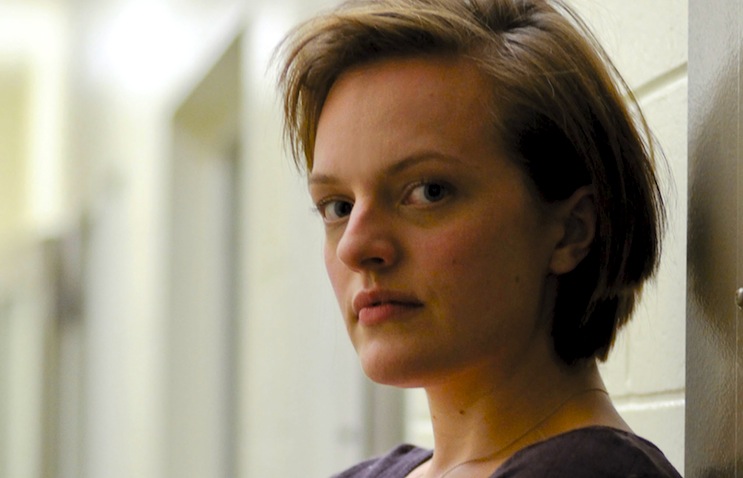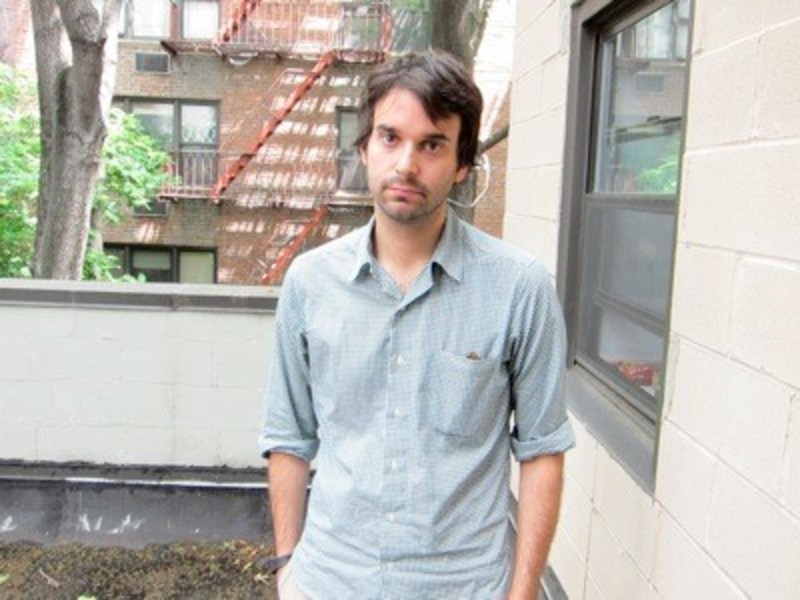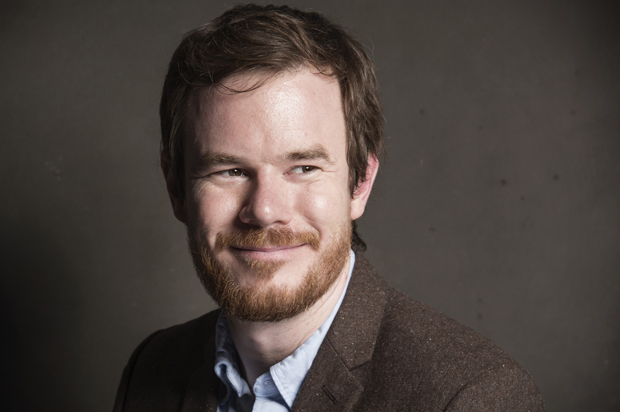Queen of Earth: An interview with Joe Swanberg and Alex Ross-Perry

We get together with Berlin Film Festival first-timer Alex Ross Perry and indie film supremo Joe Swanberg to discuss their new project Queen of Earth. After a good reception at the Berlinale, we hear about the film’s inspiration and the baggage that comes with making movies in the modern world.
Tell us about how you got the idea for the film.
Alex Ross Perry: Very soon after finishing off my last movie, Listen Up Phillip, Joe said: “Do you have anything we could make quickly with fewer resources?”. I’m really interested in our society’s current relationship with privacy and our entitlement to privacy. The idea of keeping information away from others and the idea of doing a small, claustrophobic movie that dealt with a lot of these things appealed. We were really consumed by it by last March and the idea was really exciting, it seemed like an interesting opportunity to build a movie that would be both achievable and entirely different from the movie that I had just made.
So how long was the process of putting it together?
ARP: We had these conversations around March and I sent the script to Elisabeth (Moss) the first weekend of May. Then we shot the movie in September, so from the first time we met until when it wrapped was about seven months. In the middle, it was a case of tinkering with the script, and because she was involved so quickly it meant having her as a partner for several months, so we could get other elements of the film to line up.
Joe Swanberg: Yeah, you do a movie like this in the most convenient way possible for the actors because they are the most central building block. Our attitude was: whenever Elisabeth could do it.
You mention that some of the central themes are entitlement and privacy – how did you develop them?
JS: Well one of the things we’d been talking about was how much artists are expected to divulge about their working methods and personal lives. The idea that you could not do interviews and still be a bestseller is impossible now. The public demands to know not just about the work itself but about you as a person and I feel that that’s something we’ve seen change a lot since when we were kids.
ARP: Yeah it’s interesting. We were post-Sundance, where we both had movies, saying we’re two independent film makers and really nobody should care about us. There is no reason why somebody who makes small movies that are released by small companies in art house theatres should be someone who people are interested in. Nobody needs to know any of this stuff, and yet to be a part of the first wave of people to learn something new about someone else gets them so excited. Knowing things about people has became a form of currency, and the quicker you learn something the cooler you are. It’s just something that I find very interesting. The movie isn’t literally about that, but it is about the effect that it could, and probably does, have on people.
As you say, both of you can be said to be part of independent cinema and the more you move towards the mainstream, the more privacy can be jeopardised. Does that motivate you to stay where you are?
JS: I think that the mainstream is always changing too; for me in my career I would credit Lena Dunham and the Duplass brothers for moving the mainstream closer to us rather than us going closer to the mainstream. It’s definitely a delicate balance. It can be hard to figure out, for instance, the need for the actors in my films to go and publicise them, to go on talk shows, have their pictures taken at certain events and everything else that goes into the modern promotion of a film. Is the willingness to keep doing it pushing us further in that direction, or is it that it’s the only way to get anyone to notice our movies? It’s hard to tell whether it’s encouraging something that would go away or whether the reality is that I need to do that in order to have an audience, because I don’t want to make movies that exist in a vacuum.
Did the prospect of a bigger budget, and potentially more studio involvement, push you towards a smaller project?
JS: There’s certainly a lot of pressure to take the money back. The bigger the financial risk, the more pressure there will be when the movie is finished, which is partly why I said to Alex after Listen Up Phillip “Let’s do something smaller, not bigger”. It’s also why I’ve always tried to keep moving back and forth in terms of size and expectation because I don’t want to be on the type of trajectory where everything has to be bigger than the one before, it can be limiting in a lot ways.
ARP: Doing a small film in a bubble makes it a quick and un-interfered-with process, which for actors is rarer than it is for filmmakers. For an actor to be involved in something in which there’s really nobody checking in on it is impossible, because no TV show or movie would be like that. It became a very collaborative process in which we could say “Let’s just try something”, and go as far as we can without anybody stepping in and saying “I think you’re making a decision that is going to compromise the value of this movie”. And so you end up with something that’s really personal and really idiosyncratic. Hopefully that’s what people respond to. It’s not an attempt to push it into the middle, it’s clear that the movie is just a fun exercise for the people who made it and that joy of unrestricted creative impulses follows through to a movie that’s unique and interesting.
Are you trying to find a balance, then, between the product itself and the scale on which it’s received?
JS: Well I don’t know, I think that the product itself has always been the focus, and it still is the focus, it’s just that I’m learning that there are always different ways to advertise it, the easiest of which is to have famous people stand in front of it. I think that famous people know that and are willing to do it – it’s become part of their job. I would say that I’m grateful to them for their willingness to do it so that we can be left alone whilst we’re making the movie. If they are willing to go and do all that work, then there’s an audience.
I know that you, Joe, like to use improvisation in your films. Did you do a lot on this?
JS: We thought about doing more than we ended up doing.
ARP: There was a full script, not that long, but it was the whole movie. I wanted it to be open, so I said “Here’s the scene, and by all means memorise this, but anything else you want to is fine. If you want to skip the first five lines or stand when the script says sit, that’s fine with me.” It’s a form of improvisation, it’s not exactly how people think of it when crafting dialogue, but it’s always fun for me when it gets to a point where the actors feel free to say “Hey, let’s try this”. Actors who have jobs on television never get to say the phrase, “Hey, let’s try this”. To me, that’s one hundred percent improvisation, it’s just not exactly how people interpret what the word means.
The film has moments that make you question the reality of what Catherine apparently sees. How can we interpret them?
ARP: A big movie for me when making this one was Robert Altman’s Images; that movie does something that I wish I could copy, but if I did it would just be stealing, since there’s no other way to do it. I like the blurring of subjectivity and objectivity, seeing what the character’s seeing and showing that it should not be taken as the objective truth.
Finally, Queen of Earth is being compared by many to Ingmar Bergman’s Persona. Did you watch it before making the film?
ARP: I did, around ten years ago, but as we were making it I actually tried to watch films that I’d never seen before. I’d never seen Images until after I’d written the script. Another one-location drama that I had never seen was Woody Allen’s September, which gets a bad rap in his cinematography, but I thought it was really elegant and sophisticated and quite inspirational. Then, whilst I was writing, I went to a double feature of two Fassbinder films, The Bitter Tears of Petra Von Kant and Martha. The script was pretty much written, but then I watched them and I realised this is the type of movie I want to make; it really gave the movie a face.
Benedict McKenna
Queen of Earth does not yet have a UK release date.
Read more of our reviews and interviews from the festival here.
For further information about Berlin Film Festival 2015 visit here.























Facebook
Twitter
Instagram
YouTube
RSS